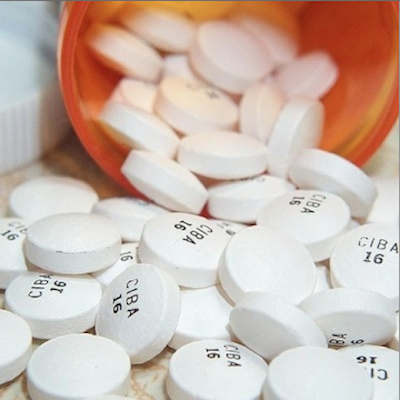College Admissions: Inside Tips for Aspiring Pre-Meds
Monday, July 31, 2017
The road to medical school and becoming a doctor isn’t what it used to be. Getting into med school has always been tough, but for those who made the cut in past generations, there was an assurance of high earnings and a rewarding career.
Today, ask a doctor if they would recommend the profession to a young person, and many will have a tenuous answer. While there is no question that most doctors love helping others, they are plagued by piles of administrative paperwork, low reimbursements, high malpractice risks and skyrocketing insurance costs for their practice. Nevertheless, high performing students are drawn to the idea of becoming a doctor, often starry-eyed and unaware of the challenges that lay ahead. Here are a few things that students who are considering a medical career need to know as they approach college:
Major in Music, But Take Pre-Med Courses
You don’t have to be pre-med (or even a science major) to apply to med school. In fact, many medical schools would prefer that you major in something else. So, go ahead and major in music, philosophy, political science or whatever interests you. However, you MUST take the pre-requisite science and math courses in order to be eligible for most med schools. MIT has a great suggested list of courses. Undergraduate research, internships and publications are also an attractive asset on med school applications. So, understand if those opportunities are available at the colleges you are considering.
GET THE LATEST BREAKING NEWS HERE -- SIGN UP FOR GOLOCAL FREE DAILY EBLASTStatistics Can Be Manipulated
When looking at undergrad programs, investigate their statistics regarding the pre-med curriculum and medical school acceptances. Some colleges will boast figures like “92% of our students who applied to medical school were accepted”. That’s impressive when nationally only 46% of applicants are accepted. But, ask what percent of students who started in pre-med finished in pre-med? If 60% were dropped from the program for low grades, that’s something to think about. I know more than a few students with A’s in their high school AP science courses who struggled to get C’s in college Chemistry; the jump to college-level science is usually huge. Also ask about pre-med advising and average MCAT scores.
Science Grading Curves - Survival of the Fittest
Remember that science courses in college are often graded in a different way than in high school. At larger universities and Ivy League schools, sciences are graded on a curve. This means that everyone who scores above 90 DOES NOT get an A or A-. Instead, the top 10% may get A’s, the next 20% B’s, 40% C’s, 20% D’s and 10% F’s. Curves vary, but the bottom line is that very few students get the A’s needed to get into med school. It’s a weeding process that forces many students out of a pre-med track.
It’s not unusual to see 30-60% of students drop out of pre-med at universities that grade on a curve. On the other hand, many small liberal arts colleges do not grade science courses on a curve, the professors are available for extra-help, and the college tends to be very vested in getting as many students as possible into med school. If you aren’t sure if a college grades science courses on a curve, ASK! And seriously consider a small liberal arts college, if your final goal is medical school.
Ways to Improve Your Science GPA
There are specific “weed out” courses in the pre-med curriculum, designed to thin out the pack. Organic Chemistry is the most famous; the second semester usually looks like a battlefield of empty seats. Doctors will often advise their pre-med children to wait and take the toughest pre-med courses at their home state university in the summer when they can focus on just one course (and when grading is usually easier). You need to check ahead of time to ensure that the credit and grade will transfer to your college, but if you are attending the primary campus of a four-year state university, it usually will.
Med school admissions committees look at several factors when accepting students. They consider overall GPA, your science GPA, MCAT scores, research or hands-on experience, extra-curricular and leadership activities. Your two GPA’s and MCAT’s are the most important factors. So, picking the right undergraduate program to maximize your chances for acceptance to medical school is one of the most critical elements in becoming a doctor.
Cristiana Quinn, M.Ed. is the founder of College Admission Advisors, LLC, a private college admissions counseling company based in Providence, Rhode Island. www.collegeadvisorsonline.com
Related Slideshow: 10 Pieces of Advice for College Freshmen and Their Parents
Heading off to college can be a stressful time. To ease the anxiety, Cristiana Quinn, GoLocalProv's College Admissions Expert, has some sage words for children and parents alike.
Related Articles
- College Admissions: How To Get Noticed by College Coaches Now
- Dirty Little Secrets of College Admissions
- College Student’s Video Shakes Up Education
- College Rankings: What to Believe
- College Crusade Announces Winter Programs for Urban Teens
- College Admissions: The Real Story on Extra-Curriculars
- College Admissions: 8 Summer Programs with a Career Focus
- College Admissions: Ivy League 2020 Competitive and Diverse
- College Admissions: How To Keep From Choosing The Wrong College
- College Admissions: 4 Ways to Increase Your Financial Aid Package
- College Admissions: 3 Reasons To Take a Gap Year
- College Admissions: Top Ways to Explore Majors and Careers
- College Admissions: No Acceptances? Don’t Panic
- College Admissions: 5 Admission Factors You Can’t Predict
- College Admissions: 6 Questions You Need To Ask On College Visits
- College Admissions: 5 Hard Truths About Athletic Recruiting
- College Admissions: Remove Barriers & Watch Applications Surge
- College Admissions: 5 Websites Revolutionizing Admissions
- College Admissions: 5 Questions to Ask Career Services
- College Admissions: Openings Still Exist at Great Colleges for Fall
- College Admissions: 5 Ways to Get Ahead This Summer
- College Admissions: High School Classes Colleges Look For
- College Admissions: 6 Things Seniors Need to Do Right Now
- College Admissions: 5 Endless Summer Colleges
- College Admissions: 3 NE Colleges Where You Can Save $60K or Get Free Master’s Degree
- College Admissions: Why Starting in 9th Grade Matters
- College Admissions: The 5 Most Unusual Colleges in the U.S.
- College Admissions: 700 is the New 670 on SAT
- College Admissions: How a College Can Take Back Your Acceptance
- College Admissions: 6 Last-Minute Summer Ideas for HS Students
- College Admissions: 7 Things Your College Counselor Won’t Tell You
- College Admissions: 10 Pieces of Advice for College Freshmen and Their Parents























